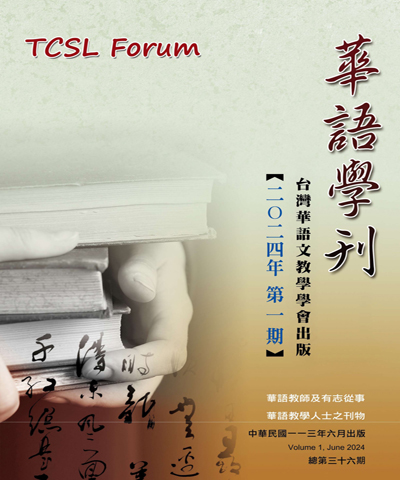
華語學刊
台灣華語文教學學會,正常發行
選擇卷期
- 期刊
香港的中文作為第二語言教學的課程,除了由大專院校開辦的對外漢語課程及國際學校提供的中文課程外,還有近年備受關注的面向非華語學生(Non-Chinese Speaking Students)的中文課程。本文旨在評介香港非華語學生中文課程的實施狀況及其特色,通過對有關文獻及統計資料的考查與分析,探討當中的教學困境與對策。研究針對目前非華語學生中文教學在課程、評估及師資方面的不足展開論述,建議當局考慮從以下三方面加以改善:一、改革課程設置,重新審視對非華語學生的語文教育政策,積極考慮另設一個適應非華語學生學習需求的中文課程,與本地華裔學生的中文課程雙軌並行;二、優化評估機制,建立適用於香港本地的中文作為第二語言能力的評核基準,客觀反映非華語學生的中文學習進度和能力水平;三、加強校本支援及師資培訓,針對目前非華語學生中文教材不足、教師工作量大的情況,增撥資源加強校本專業支援,並與大學及研究機構合作,提供合適的教師培訓及開發教材資源等,以改善目前的教學困境,提升教學成果。
- 期刊
This paper aims to answer the question on the status of the Chinese language in the Philippines with a special focus on the teaching of Mandarin (華語) at Grace Christian College. While Mandarin is the national language in China as well as in Taiwan, in the Philippines the most commonly spoken language among the Filipino-Chinese (also known as Chinoy) is Hookien or Fookien or Amoy. This is because most of the Chinoy here traces their ancestry in the southern part of China, specifically in the Fujian (福建) province. Fookien continues to be used among the Chinoy despite the hundreds of years they have lived in the Philippines albeit at a decreasing degree. Studies show that there are two institutions that highly contribute to this: the home and the school. This theory has been supported by face-to-face interviews of Filipino-Chinese living in Quezon City as well as by readings on the history of China. A special focus is on Grace Christian College, a Filipino-Chinese educational institution that has seriously supported the teaching of Mandarin. Chinese language and culture is a part of the double curriculum of Grace Christian College so that when students graduate they receive two diplomas: one for English and another for Chinese curriculum.
- 期刊
In a school climate in which many overseas Chinese students struggle to maintain enthusiasm for learning Chinese, Joshua Kellard argues that our typical motivational strategies are ill-conceived and ineffective. What is needed is an affective understanding of learner motivation, one that recognizes that we study well what we have first come to love. This being the case, the task of parents, administrators and teachers becomes the propagation of affection for the Chinese language which must transcend the merely linguistic or mechanical aspects of learning, and appeal to students with differing interests. It will be seen that the social context of learning becomes all-important in such an endeavour. In closing, the paper will propose three strategies for transforming student motivation at the affective level.

